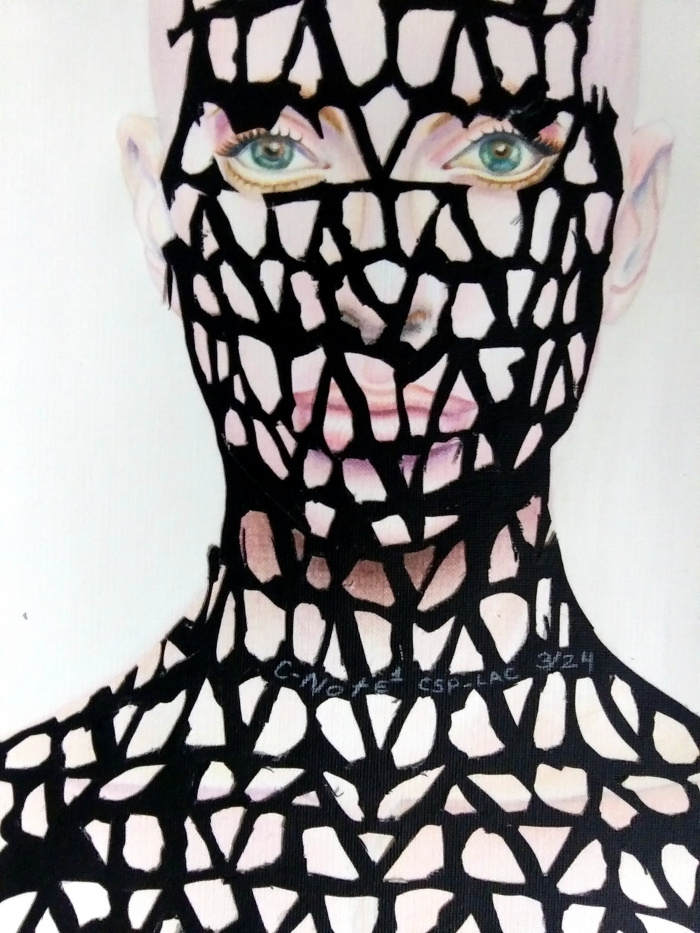-Analysis-
BEIRUT — Leaked documents revealed in February from the American Israel Public Affairs Committee, AIPAC, showed that Leonid Radvinsky, owner of the OnlyFans platform for sex workers, donated $11 million, the second largest donation to the prominent pro-Israel lobby since October 7.
Radvinsky denied the donation, saying: “I didn’t donate or pledge $11M … this appl[ies] to me / my foundation / my family.” The documents however indicated a bank transfer issued from his wife’s account to the lobby’s bank account.
For the latest news & views from every corner of the world, Worldcrunch Today is the only truly international newsletter. Sign up here.
We point to this donation as a starting point to understand the relationship of the pornography industry and pornographic content to the Israeli military and the war on Gaza. It is also no secret that Israeli adult film actors inscribed their names on the missiles sent to Gaza, including Michael Lucas, owner of pornography production studio Lucas Entertainment.
The use of pornographic images, including those created with Artificial Intelligence, have been circulated regularly on social media since Oct. 10 — three days after Hamas’ attack on southern Israel — under the title “Found in Gaza.” The images didn’t precisely clarify the balance of power. Do we see Israeli soldiers and detained Gazan women, or vice versa? Or Hamas fighters capturing Israeli women?
But what is striking in the pictures is the military uniform, and the gunmen who are seen as pornographic actors, interested in the woman’s body. It is also not clear whether the women in the pictures are prisoners or fighters.
We see bright and clean bodies, free of any wounds or signs of involvement in war, and resembling images of pornographic ads or posters, designed to create an ultra-realistic image, devoid of defects, that addresses desire in its purely artificial and consumer form.
Kosher sex
The presence of the pornographic phenomenon during the Israeli wars is not new. In 2004 when Israel launched its “Days of Rage” military operation in northern Gaza, the pornographic company “Vivid” released a four-hour pornographic film entitled “Gaza Strip.”
The firm description said: “Your harem or my harem?” It shows veiled women having sex, beautiful women showing “the West how it’s done!”
The tape, of course, belongs to the era prior to amateur pornography. It contains an Orientalist imaginary, in which the bodies and stories do not resemble what is happening in the region.
In the current war, and due to the changing nature of the era, we find ourselves facing amateur porn. We see “OnlyFans” model Natalia Vadeev leaving her “profession” to join the Israeli military and publishing pictures of herself in military uniform on the “front,” or launching a “Standing With the IDF” campaign that urges women to send their nude pictures to Israeli soldiers to “raise their morale.”
This promotion of sexual freedom is part of a broader policy linked to the image of Israel, as an “oasis in the Middle East,” a “gay paradise,” with nudist beaches.
There are some who accuse ultra-Orthodox Israeli society of being obsessed with sex, as is the case with the kosher sex toy store owned by Rabbi Shmuley Boteach, who is a staunch defender of Israel and author of the book “Kosher Sex: A Recipe for Passion and Intimacy.”
But for some, it is an attempt to establish a cultural and moral difference from the extremist, militia-Islamist environment (Hezbollah, Hamas…), not to mention Syria’s genocidal regime of Bashar Assad that has been used by Israeli politicians as the most brutal example that set a new standard for the laws of war and the killing of civilians.

A Palestinian user relays the suggestive pictures of an Israeli soldier on X (formerly Twitter).
Bedroom as battlefield
There have also been images circulating of Israeli soldiers storming Gazan homes, wearing women’s clothing and mockingly and playfully wearing women’s clothing in violation of the intimacy of the bedroom. The ironic “feminization” of the military masculine body in the images appears as a display of strength at first. But it also reflects the fragility of masculinity itself, and the means of reversing gender roles for further mockery, transforming the personal into a public affair as an insult.
It’s notable that this phenomenon — soldiers wearing women’s clothes during war — has been repeated throughout history. Syrian soldiers wore women’s clothing when they stormed Syrian villages and cities, but the clearest case were the pictures of Nazi soldiers, as they disguise themselves and wore women’s clothes as if it was a carnival.
In this practice, the soldier is not satisfied simply with carrying out orders to kill, but is also capable of “reversing” his role into mockery through celebrating “victory” by putting himself into the victims’ clothing.

Palestinian reporter Younis Tirawi shares a picture of Israeli soldiers posing with the underwear of a Palestinian woman.
Paz G in Gaza
None of the above applies to Paz G, who identifies himself on his “OnlyFans” account as “Israeli 23 years old, army guy, farmer, nudist.” He presents a satirical image of an Israeli soldier, carrying a quiver of bullets with an erect penis in his bedroom, and takes a photo of himself in his military uniform in the barracks, and another of himself naked in the open.
Paz’s case refers to the Israeli army’s history of employing pornography, such as broadcasting pornographic films on Palestinian television during the invasion of Ramallah in 2002 (enemies’ space), as well as efforts of the Israeli parliament, the Knesset, to legalize pornography in Israel in 2016 (citizens’ space).
Paz G’s image is different from other soldiers we see in pornographic films. We see a real soldier, who turns from one who holds a weapon tightly to one who grabs his penis with his hand as seen on dating apps currently in Israel, which the Israeli daily Haaretz described as “the effect of the military uniform.”
Paz G’s pictures were used to criticize the Israeli army, as part of a series of accusations against it after nearly 10 months of war. The problem, however, is not the soldier himself, but rather the war (the battlefield) that has been turned into an oasis for individual pornographic performance. And this is a possibility that must be considered.
The erotic imagination knows no bounds. But who is the audience for Paz’s pictures?
We couldn’t know, because the comments on Paz’s posts on the “X” platform range from accusations describing him as a “murderer,” “disgusting,” and a “Nazi.” There are also those who praised his body. The pictures, meanwhile, reveal a pornographic teenager who used personal lust in a way that doesn’t rise to propaganda.
The problem becomes clear when we read the soldier’s account on “OnlyFans,” written on the wall of a destroyed house in Gaza with an invitation to participate. We here see not only the dehumanization of Gaza as a territory and people, but also the role of the capitalist institution in making money, and seeking to transform any space into a place to invest, even if it is ruins and rubble.
Indeed, part of the popularity of OnlyFans, which has a capital of more than $5 billion, is that it is a company that allows an amateur to “invest” wherever he is in his room, on the beach, or amid the ruins of Gaza. There is also a question about human nature: “Who can become erotic while a genocide is underway? What does he dream about?

OnlyFan model Natalia Vadeed poses in military gear in an X (formerly Twitter) post about Hamas.
Ambiguity of a “moral” army
The accusations against Paz G and his role as a soldier in the Israeli military are notable in what some boast is the “world’s most moral army.” We cannot deny the employment of these practices in Israeli propaganda, and here the contradiction becomes clear. In 2007, four female Israeli soldiers posed nude, and published their images while holding their military weapons. They were penalized, because their actions didn’t represent the “ethics of the Israeli army.” The same thing happened last year, when two soldiers were punished for publishing photos of themselves naked, during a shooting exercise.
The phrase “Israeli army ethics” is a paradox, with violations and sexual play permitted with “enemies” and in “enemy spaces.” But it is entirely another matter when it undermines the image of the Israeli army institution.
In a way, the Israeli army is ethical, even conservative, towards itself and its citizens, even if it is not with its enemies. The geographical space in which the Israeli army wages “war” seems open to all possibilities. Soldiers have the “freedom” to violate the rights and bodies of others, ranging from killing to pornographic play, as if the “space of war” is outside the scope of Israeli law itself. This double standard in the use of pornography continues to confirm this truth.
From Your Site Articles
Related Articles Around the Web
This post was originally published on this site be sure to check out more of their content.





